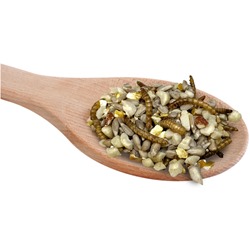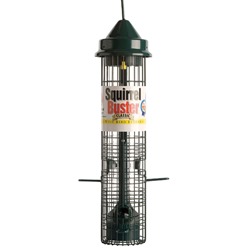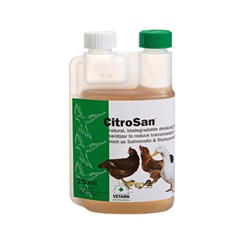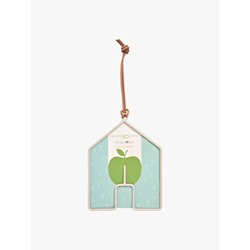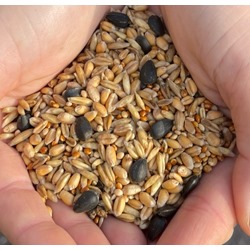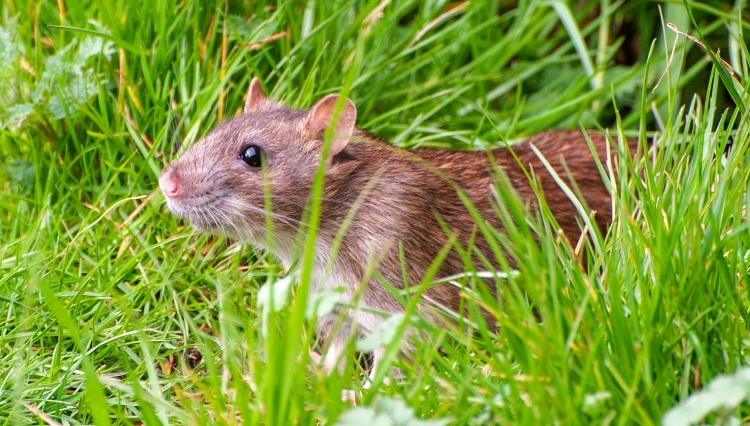
When you put out bird feed, you never know what kind of birds you’ll attract. While you can select certain feeds that are more popular with certain birds, you can never predict exactly what birds will come to visit your garden.
While having any feathered friend come to visit is a delight, putting out food for birds can also entice some more unwelcome visitors. Bird feeders can be an attractive sight for garden rats, and they can be inclined to help themselves to the feed.
Why Are Garden Rats a Problem?
While no animals are inherently good or bad, the presence of rats in your garden can be potentially harmful to the health of your garden, wild birds, and even yourself.
Rats chewing and burrowing can cause physical damage to your garden fruit, vegetable patches, seeds, bulbs, and more. Wild rats can also carry diseases such as salmonella and leptospirosis, which can be potentially dangerous for the health of both wild birds and yourself. Rats can also be violent to birds, particularly targeting eggs from ground nesting birds and vulnerable chicks.
Then of course, if you have a garden rat problem, you’re only one step away from having rats in your home. In the home, rats can chew through wires and cables, clothing, and can also create unpleasant smells.
While bird feeders don’t necessarily cause rat problems, if a rat perceives your garden as a reliable source of safe food, it might be inclined to overstay its welcome. If you’re looking for tips and advice on how you can keep rats away from your bird feeders, you’re in the right place!
How to Keep Rats off Your Bird Feed
One: Keep the Garden Clear
The presence of long grass and brush gives a rat ample opportunity to hide. Rats are naturally cautious and skittish creatures so long grass and over-crowded conditions gives them confidence to venture across your garden and help themselves to your birdfeed.
Rats like to hide in dark corners, be that long grass, around the back of your shed, or holes they can easily burrow into. Keeping your lawn clean cut and tidy minimises these safe spaces for rats. If you have outdoor pets like rabbits or guinea pigs or you feed wildlife in your garden like hedgehogs, it is also important that you clear away any leftover food that could make a tasty snack for a rat!
Two: Move Things Around
Interestingly, rats have been shown to display a certain behaviour pattern known as neophobia – when confronted by unfamiliar objects in their environment, they will be wary and avoid them. By rearranging your garden furniture, ornaments, bird feeders, and anything else in your garden, you can discourage rats from exploring your garden.
Three: Install Rodent Proof Bird Feeders.
This one might seem pretty obvious, but installing a rodent proof bird feeder is a great way to prevent rodents from gobbling up your bird feed.
Avoiding bird feeders that are easy for rodents to access can go a long way in discouraging rodents from invading your garden and trying to eat your bird feed.
We’d advise against using ground feeders and other such feeders that might give a rodent easy access. Instead, opt for something taller, such as a feeding station.
Gardman Feeding Station
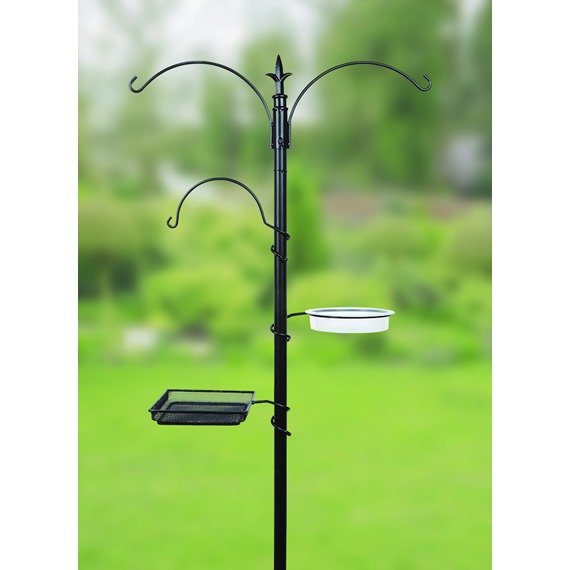
Feeding stations such as these are great for preventing rats from accessing bird feed. If you’re worried about other rodents such as squirrels, you can also lubricate the pole using something like Vaseline to make it even more difficult for rodents to scale the pole.
Shop Gardman Feeding Station
An alternative option to putting Vaseline on a feeding pole includes using a baffle.
Baffles are designed to make it difficult for vermin such as squirrels to access the bird feeder. Although usually targeted at squirrels, baffles are just as effective with scrounging rats.
If you’re interested in using a baffle to prevent rats from accessing your bird feeders, we have a range available here at Really Wild Bird Food.
Bird Table Squirrel Baffle
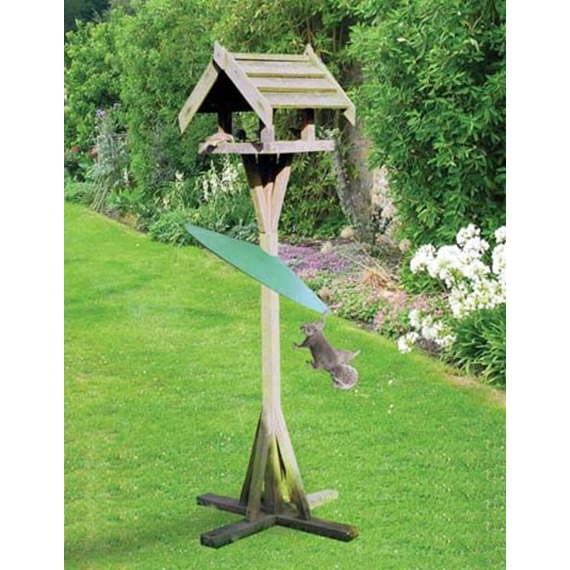
Baffles are an easy way to prevent squirrels, rats, or any other would-be pests from gaining easy access to your bird feed.
Shop Bird Table Baffle
Four: Try Natural Rat Repellents
Studies have shown that rats don't like strong smells such as garlic powder or peppermint oil so if you have vulnerable areas in your garden it may be worth sprinkling some around to deter rats from visiting your property. You can also use spices like chilli, cayenne pepper and cloves. Planting wood hyacinth, allium and daffodils in your garden can also act as a rat repellent and should keep your rodent visitors at bay!
Five: Avoid Feeding for a Few Weeks
Although this isn’t an ideal solution, avoiding putting food out for a few weeks can be used as a last resort solution for trying to stop rats from scrounging at your bird feeders.
Not putting bird food out for a while can stop rats from thinking of your garden as a food source. After a few weeks of no food, the rats should stop coming. If you’re going to use this method, we’d recommend doing it in the summer months when there are many alternative food sources for wild birds.
In order for this method to be truly effective, you also have to be cautious about leaving any other food sources for rats. If you can help it don’t eat outside, and if you do, ensure you take all of your mess with you, and don’t leave crumbs or food that might encourage rodents.
* * *
We hope this blog has been useful to you, and you feel better equipped to face any rodent would-be-trespassers. If you still have any questions about keeping rodents away from your bird feeders, feel free to reach out and contact us here are Really Wild Bird Food today. A member of our team will be more than happy to answer any questions you may have, and help you select the right products for you.
Contact Us
You can find further advice on preventing a rat infestation on the British Pest Control Association's website. If you're seeing rats regularly or are finding clear evidence of the presence of rats, we recommend you contact a professional pest control service.
Read More: Tips for Out-Smarting Squirrels
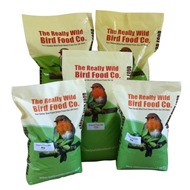
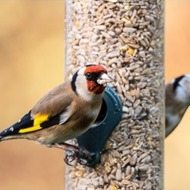 Back
Back Bird Feeders
Bird Feeders  Seed Feeders
Seed Feeders Peanut Feeders
Peanut Feeders Peanut Butter Feeders
Peanut Butter Feeders Suet & Fat Feeders
Suet & Fat Feeders Window Feeders
Window Feeders Hanging Feeders
Hanging Feeders Feeding Stations
Feeding Stations Ground Feeders
Ground Feeders Easy Clean Feeders
Easy Clean Feeders Bird Tables
Bird Tables Seed Trays
Seed Trays Bird Baths & Drinkers
Bird Baths & Drinkers Feeder Accessories
Feeder Accessories Feeder Hygiene
Feeder Hygiene Squirrel Proof Bird Feeders
Squirrel Proof Bird Feeders For the Kids
For the Kids Niger Seed Feeders
Niger Seed Feeders Mealworm Feeders
Mealworm Feeders Bird Food Storage
Bird Food Storage Fat Ball Feeders
Fat Ball Feeders Tube Feeders
Tube Feeders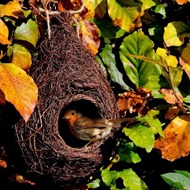



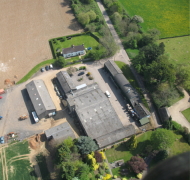 Our Farm
Our Farm Contact Us















